How can I implement grieving into my work?
Grief is essentially loss becoming embodied. It is our fears turning into reality and our inability to cope with it.
Grieving is a process that takes a lot out of a person. But instead of looking at phycological approaches, in this paper I want to dive into cultural practices of grieving - collective, alone, loud or silent, conscious and subconscious, in history and among my friends.
For my method, I will look at how grief was practiced among my ancestors, how it was situated in the space and time of their life to see how it can be situated within my life and art practice. I will also talk with friends who are living through an experience similar to mine, and collect their dreams about the war to see how fear manifests in our subconscious.
We exist in a precarious moment, where we are constantly observing the atrocities of the world through media but don’t have space within our society to situate the dread it fills us with. With packed schedules, fast paced cities and high expectations of productivity, the ways people used to manifest their grief is reduced (to memorial posts on social media). I will refer to Susan Sontag’s «Regarding the pain of others» as a theoretical framework for understanding how painful experienced lived and observed function in our society.
The purpose of this research is to make sense of horror. Find a place for it and pay more attention to the places it is exists in now.
Abstract
Research question:
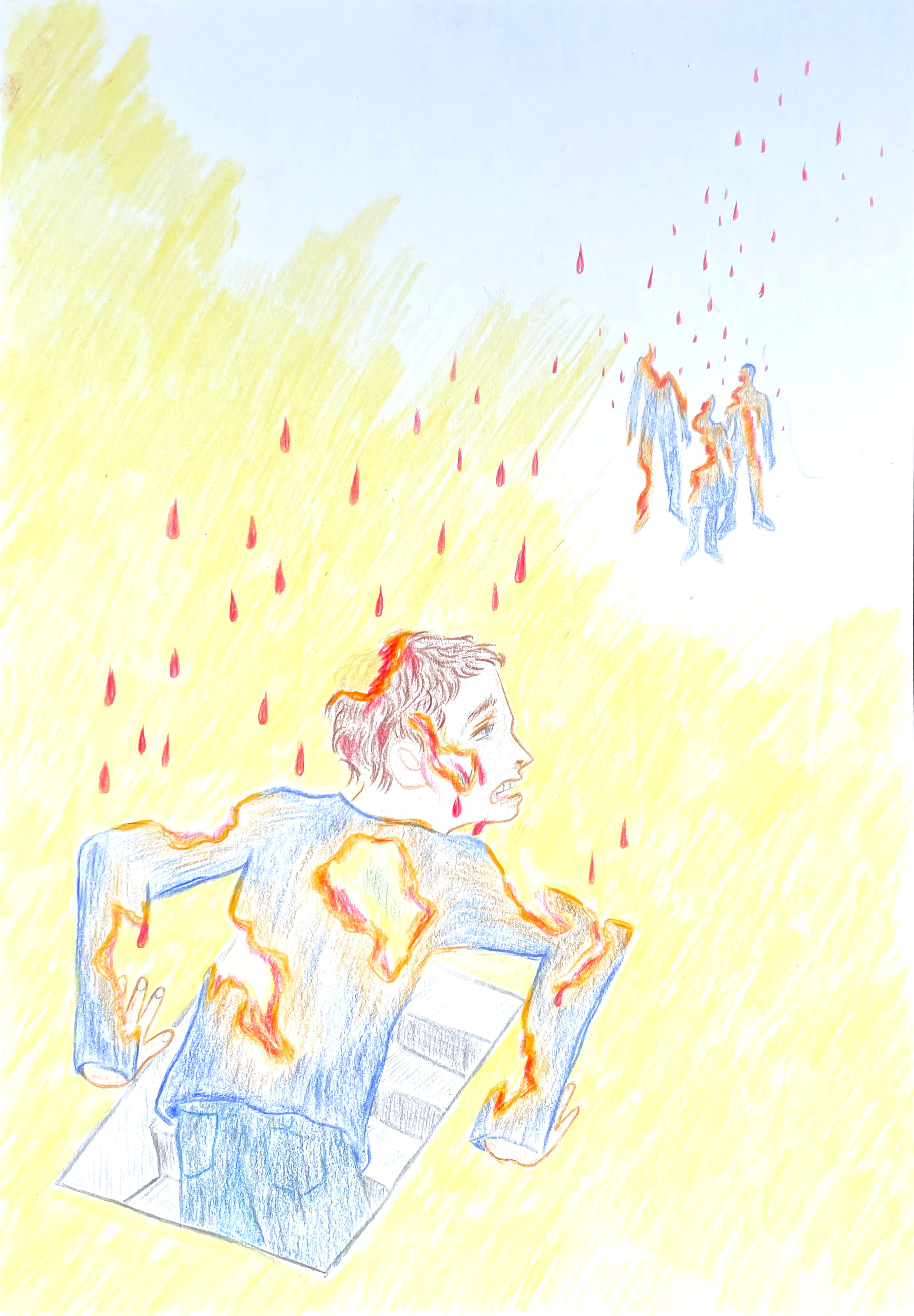
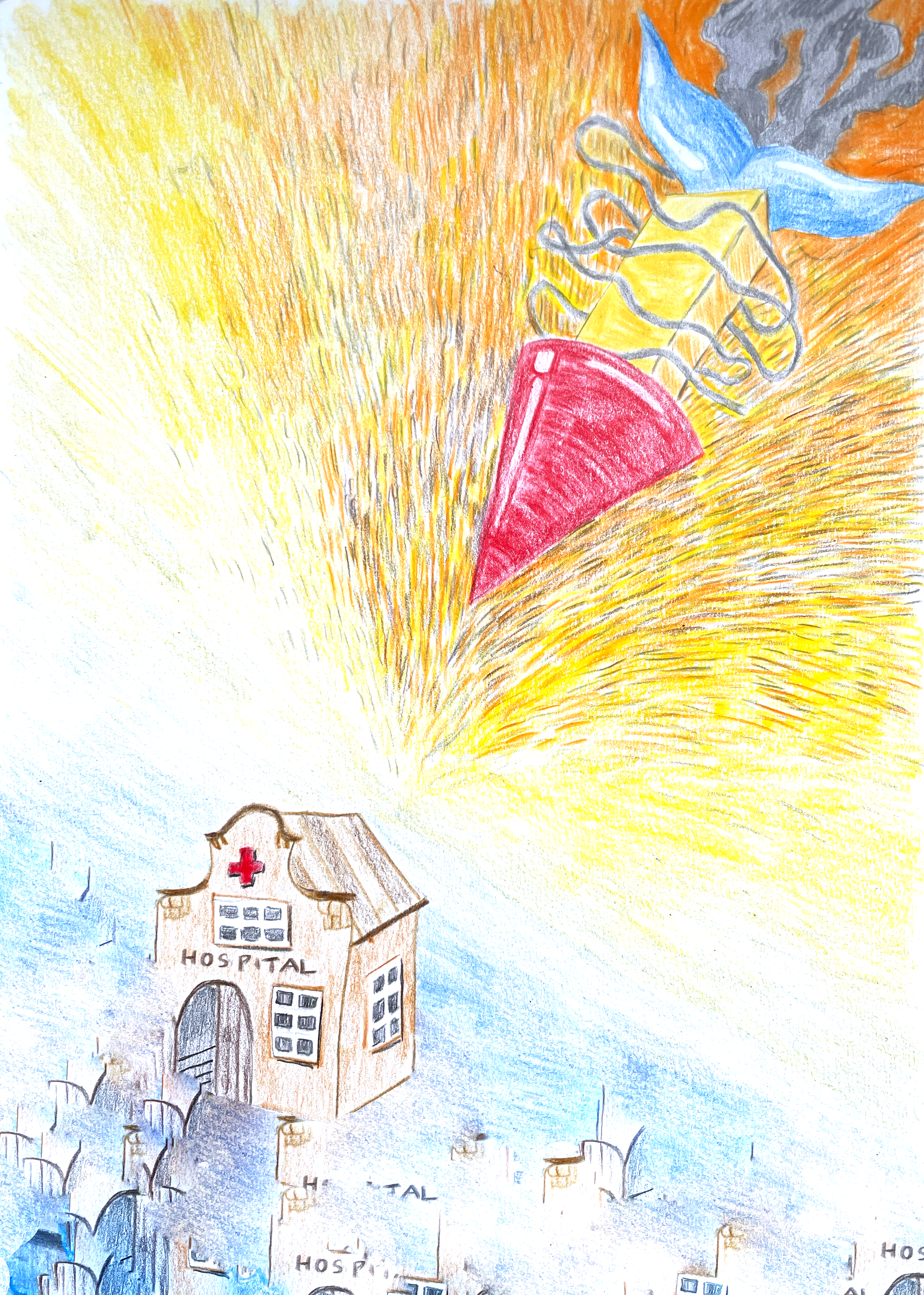
For the second publication we were required to make a sound piece. Continuing with grief and fear as main points of my interest, and looking at dreams as a location where it could be situated.
I have asked my friends to tell me what they have dreamt in the months observing the war in Ukraine. We see it from a distance but fear settles into our conscious and subconscious. There is an expression, “fog of war”, it means the inability to grasp what events unfold during military operations, the uncertainty and scare that settles into people involved. My intention is to explore the images and stories unfolding in people subconscious when they can’t rely on real information and go through fear and unsteadiness.
For every dream collected I drew an image of interpretation. I wanted to experiment with visual codes normally used for expressions of negative events and emotions, like FAR experimented with cards formats to make their images messages more transmittable. I chose primary colours because the fears expressed in the dreams were always direct, full and blinding. Also, as an opposition to normally more dark tones chosen for fearful experiences, to highlight the brightness that a traumatic memory (or dream) have in our mind. I focused on a moment from each dream where the imagery expressed reached a sort of a culmination.
I studied formal aspects of types of criers songs that construct the continuity of a morning sound. An article about family and rite folklore of Siberia gives this description:
«A characteristic of a criers’ song is their discontinuity: stanzas of lamentations, imitating crying, often end with glissando from one pitch to another within one breath, word breaks and deep pauses at the ends of phrases, the last words are often pronounced.»
And this one describes a Dagestan tradition of crier’s songs:
«She says a line in Turkic, pauses, and it is repeated in a low voice by all the women sitting in the room. This will continue until the body is buried. From century to century».
For my sound publication I decided to take from the criers song the structure of multiple voices chanting and lamenting over each other. It creates a feeling of collectivity, and in my work I am looking for a feeling of mutuality in between those individual fears.
Further development of this project would be for me to continue collecting and archiving dreams within a bigger network of people. I would also like to make an archive public and give an opportunity for other artists to interpret the dreams visually if they would like to. The goal is to create an archive of out collective fear and grief, give it a place to exist and maybe be a bit kinder to one another.
Okey so, here is my dream about the war. I remember that I was running through either a bomb shelter or a bunker. There were red lamps and water dripping all around. I run, run, run and catch some voices - voices of my friends, of people I love. Then I get up to the surface, I am blinded by a dazzling light. It is raining. Not just rain, but just… It was acid rain, it corroded the flesh of all the people I love. And then he started to eat away at me, too. And I woke up from a terrible pain and horror and fear.
From October 14 to October 15, from Friday to Saturday, I had a dream that on Sunday me, Lisa, Eva, Vlad and Vanya are walking together, but at some point we decide to split up, because Vlad and Vanya are bored with us. So, now it’s just me and the girls, we don’t check the news at the time, since we’re on a walk. On the street we meet a woman. Meanwhile around us there is already some kind of fucked up war, for some reason bombs were already flying over Holland, just missiles going back and forth. There was a feeling that the war had already turned into some kind of world war, or something of that scale. So, we had missiles flying over the city there, and we knew about it, but they weren't nuclear missiles.
…we are talking in English with this woman we met, and at some point she says: «It would be great if our world, as we know it, would not cease to exist because of your president».
She pointed to the sky where a strangely shaped rocket was flying. It was constructed from a cone and a parallelepiped glued together with thick aluminum wire inserted into it. At the end she had two fins like a fish on its tail. The metal wire was spinning and creating movement in the air, allowing the missile to fly. It was as if she was swimming through the sky, slowly, slowly. It was colored in a cartoonish way.
While we were looking at the rocket, Lisa was reading the news on her phone. She read that Putin is launching a nuclear missile at Europe. Lisa immediately grabbed Eva and me, and we ran somewhere <…> There was a hospital nearby, where doctors were standing and waving to everyone to come in urgently. We ran in there, the doors closed, and at that moment the rocket flew in. There was this big boom.
The doctors there were handing out some hoops on their heads. They were developing something against nuclear war, figuring out how to help people, and these hoops were supposed to help. They had to be put on as soon as possible, but Eva immediately fainted due to the impact of the rocket. And Lisa and I began to break down, that is, to lose consciousness slowly, so to break down and slide from the middle of the body. It looked very scary, as if a thread was pulled out of a person, and he collapsed all over. We were all just collapsing. I remember this state of complete collapse. But we still put on those hoops.
I never found out in my dream what happened to Vlad and Vanya. I woke up some time before a new rocket hit this hospital, before we all died.
Lisa Zakharova
for Visual Culture minor in WdKA
December 2022
Practical research
Theoretical research
I would like to start this part of my research by discussing a grieving practice that has existed in human cultures for longer than we remember, but that is dying out now. It is still prominent in some regions of Russia (for example, Dagestan), but in the part where I am from it has died out.
Criers, also called wailers, are women who lament, cry, and sing at funerals or other turning points in life, such as weddings or recruitment. By singing and moaning, they begin the process of grieving, allowing the close ones of the deceased to release their worries and cry them out. The lyrics of the mourners' songs are piercingly honest, they usually communicate to the deceased - requests to return and complaints about how a loved one could die make up a significant part of the crying.
A point of interest for me is how criers performed not only at a funeral, where the loss and the mourning are obvious but at weddings and recruitment. A transfer to a new position in society would provoke grieving about the loss of life that was before, an unmarried one, a one out of service. Specifically, the recruitment crier's songs were boldly expressing the fears that the man will not return from service and already burying him in the lyrics: «на кого нас оставил» ("who did you leave us for"), «сложил свою буйну головушку» ("folded his reckless head"). Thus, expressing through the song not only mourning but fear of future loss.
"In the crier's song it is essential to list all the living relatives who are in mourning and mention their grief. Other people present from the community that have recently lost a loved one are also mentioned, as people who understand and sympathize with the loss" - this is a quote from an article written by Hava Hasmagomadova, where she tells us about the crier's tradition still present in a small Dagestan village.
Thus, the goal is not only to mourn the dead but to create a network of mourning, understanding, and support among the living in the community. I find this role essential to understanding that grieving was not considered a lonely and isolated practice but another point of connectivity. I find that now we are at lack such practices because of the lack of communities that remember them.
We speak a lot nowadays about horizontal connections. How amid oppressive power that vertically shuts down all and any resistance, it is important to not leave people alone in their fight, in their grief, even in their propaganda-induced hatred. That talking to your loved ones, and expanding that network beyond those who are alike you, can stimulate conversation and strengthen resistance.
We can observe now that with the rise of social media the lonely isolated and private citizen of the 20th century is disappearing, as transparency and connectivity push us towards more sharing. However, we don’t all share visual or spoken codes, so it can be hard to reach each other even with closeness and transparency. Within those set of beliefs and visual codes a person hurt and scared in a similar way won’t connect with another person without tools for it. I think it is significant to address the ways in which going through horrors as a community was practiced before, to find new ways to implement those practices into our life now.
Feminist Anti-war Resistance is well known for diversifying its practices and building a horizontal structure of resistance and support. Not all members of FAR know of each other, their actions are decentralized and occur across a vast geographical and digital landscape. They organize performative events that are repeated by participants in different places to provoke dialogue. Distribution of trust between the members is essential.
One of their actions that is of particular interest to me is creating and distributing online cards and memes that are styled as content for the demographic groups that express more support towards the war, and trust propaganda more (elderly, people with lower education level).
Here are two examples, the first series of images is styled as inspirational quotes/memes that are popular on Russian bro community pages. They normally encourage masculine behavior and express the author’s view of what a «true bro» should behave like (take care of the mother, shut up a girl with a kiss, fight for his country). It is fair to believe that consumers of such content are more likely to go to war as a volunteer or respond actively to a drafting letter since they hold patriarchal standards of manhood close to heart. FAR uses this format to make an image look trustworthy to those users. But their images establish that a manly behavior would be to not die at a war that you don’t understand, to not touch a drafting letter, to stay at home and take care of your relatives.
The second example is images styled as poetry cards that are adored by the elderly, and are mostly distributed by them through WhatsApp chats. A significant group of elderly messenger users shares and reshares those cards through multiple chats. They normally look generically cute and pleasing, contain images of cute animals, plants, babies, and landscapes, are filled with heartwarming poetry. FAR members wrote poems within this style, replacing poem contents with antiwar messages varying from subtle (for a peaceful sky), to more straightforward (mentioning the unfairness of attacking Ukraine), to down-right aggressive (wishing Putin to die).
The point of creating both sets of cards is not only for them to spread virally, but to give people who are antiwar a tool. They (we) save those cards and send them to our relatives and friends who function within those visual codes. Show them something they recognize as legitimate but which has an antiwar message to create a conversation. Arguing and blaming each other for things we have or haven’t done for this war to happen is of no use. Keeping, forging, and strengthening connections is essential, because pro-war or anti-war we are mostly hurt, scared, sad, and grieving.
Thus, connectivity and feeling of community can be forged differently, within places for grief, fighting, and arguing.
I would like to take some points from Susan Sontag’s essay «Regarding the pain of others» and use them to create a comparative understanding of how we consume images of war and how we relate to them. The goal of such an analysis is to create a framework for approaching where do contents and images of the dreams about war come from. Sontag’s essay is mostly focused on photography portrayal of conflicts through media but she does broaden her discourse to discussing the functioning and role of those images within our consciousness:
Page 19: «The ultra-familiar, ultra-celebrated image - of an agony, of ruin - is an unavoidable feature of our camera-mediated knowledge of war» -
to me this passage explains the cinematic quality of some of the dreams that I have collected. We don’t need imagination to give life to our fears. After observed movie heroes and people on the news shot, nuked, and poisoned. When we seriously become scared of those events possibly happening to us and our loved ones, our mind calls forth a truly cinematic picture.
Of course, our enhanced media consumption creates a constant presence of war next to us, and allows out fears to cohabit closely with us:
«…home front to new tele-intimacy with death and destruction.»
Page 17:
«The understanding of war among people who have not experienced war is now chiefly a product of the impact of these images» - here, Sontag brings about a point of experiencing war from a perspective of home comfort, or more accurately, of safety. However, when I discuss personal experiences of me and people close to me, whose dreams I collect, it is important to consider that an assumption of safety shouldn’t be made. The same state that wages war is the state that controls the current course of our life and have been operating with the same modes of violence governing our lives. Though, of course, incomparable to horrors of war, being unable to return home, risk of arrest and prison, of being drafted under mobilization, of poverty, economic instability - is not the state of an outsider viewer of images of war considered in Sontag’s essay.
At a later point in the essay she exactly that the perspective of a viewer in such situations is not unified, and that to assume so is to partake in erasing experiences that exist outside of privilege:
«To speak of reality becoming a spectacle is a breathtaking provincialism. It universalizes the viewing habits of a small educated population living in the rich part of the world, where news has has been converted into entertainment - that mature style of viewing which is a prime acquisition of ‘the modern’ and a prerequisite for dismantling traditional forms of party-based politics that offer real disagreement and debate. It assumes that everyone is a spectator. It suggests, perversely, unseriously, that there is no real suffering in the world. But it is absurd to identify the world with those zones in well-off countries where people have the dubious privilege of being spectators, of other people’s pain, just as it is absurd to generalize about the ability to respond to the suffering of others on the basis of the mind-set of those consumers of news who know nothing at first hand about war and massive injustice and terror. There are hundreds of millions of television watchers who are far from inured to what they see on television. They do not have the luxury of patronizing reality» - page 97.
Compiling all of the above perspectives and practices, I want to finish off this part with a suggestion of a method.
The method that we should weaponize from the practice of criers is a method of collective compassion. At a funeral, a crier starts lamenting, and other present women join her. It is said that not all of them mourn the recently deceased, but their sorrow is sincere because each of them carries personal grief in their hearts. Here, personal singular grief stands merged in its collective expression, and thus gets a collectively recognized embodied moment.
So, sorrows of a different kind, be they loss of home, a loved one, of economic stability, or just a life you had before can gain recognition through collective art forms without explicit naming.
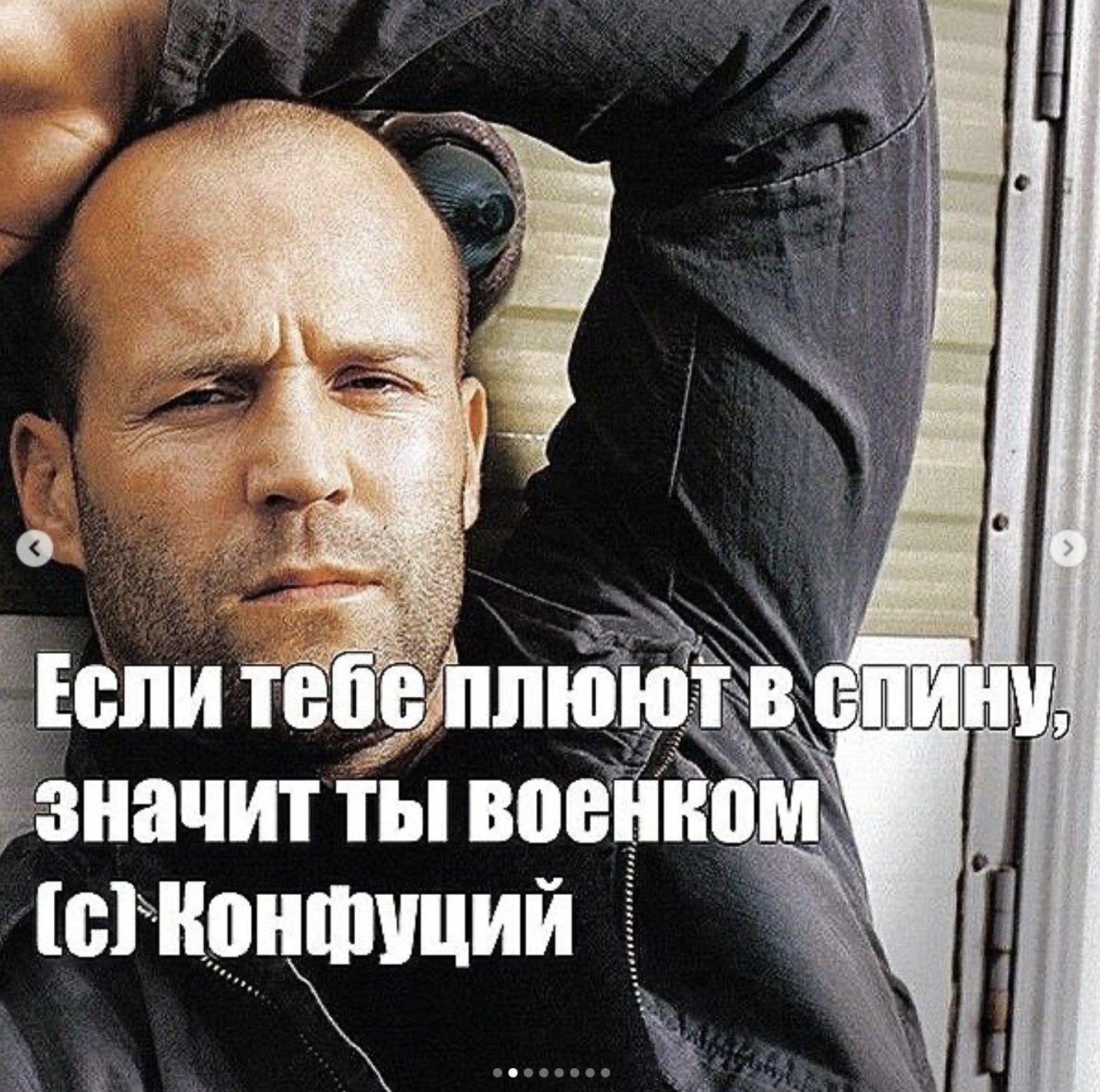
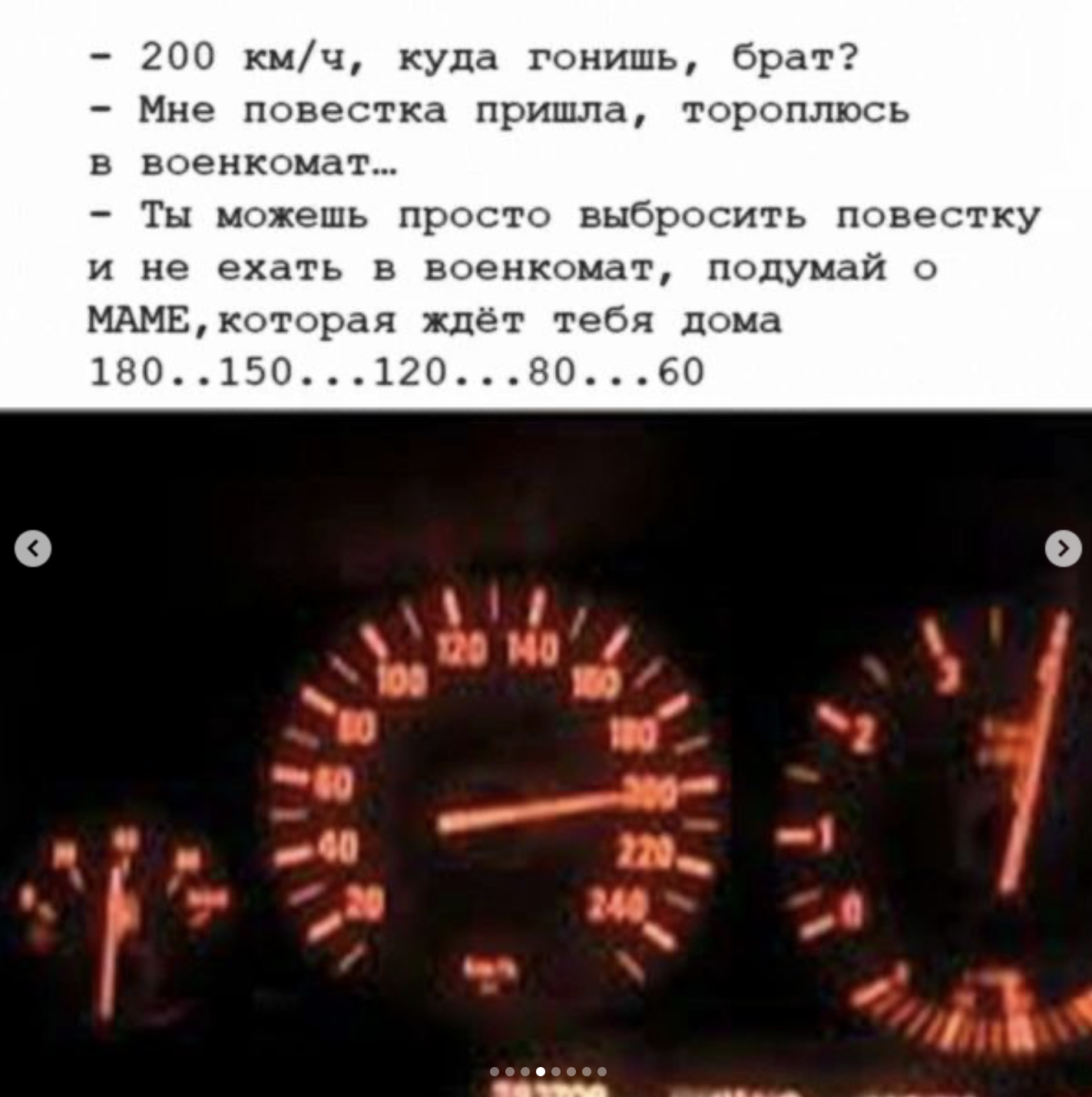
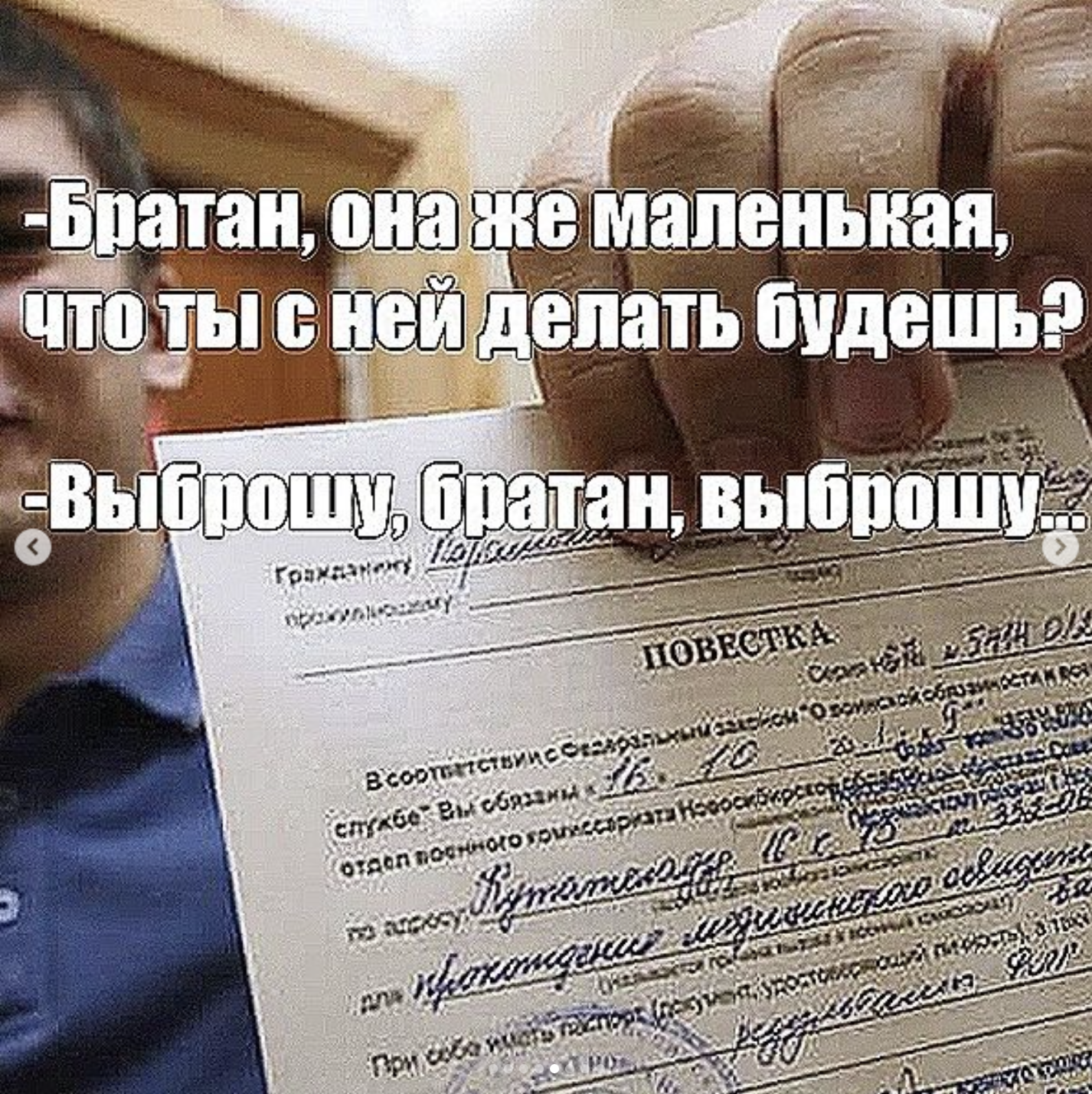
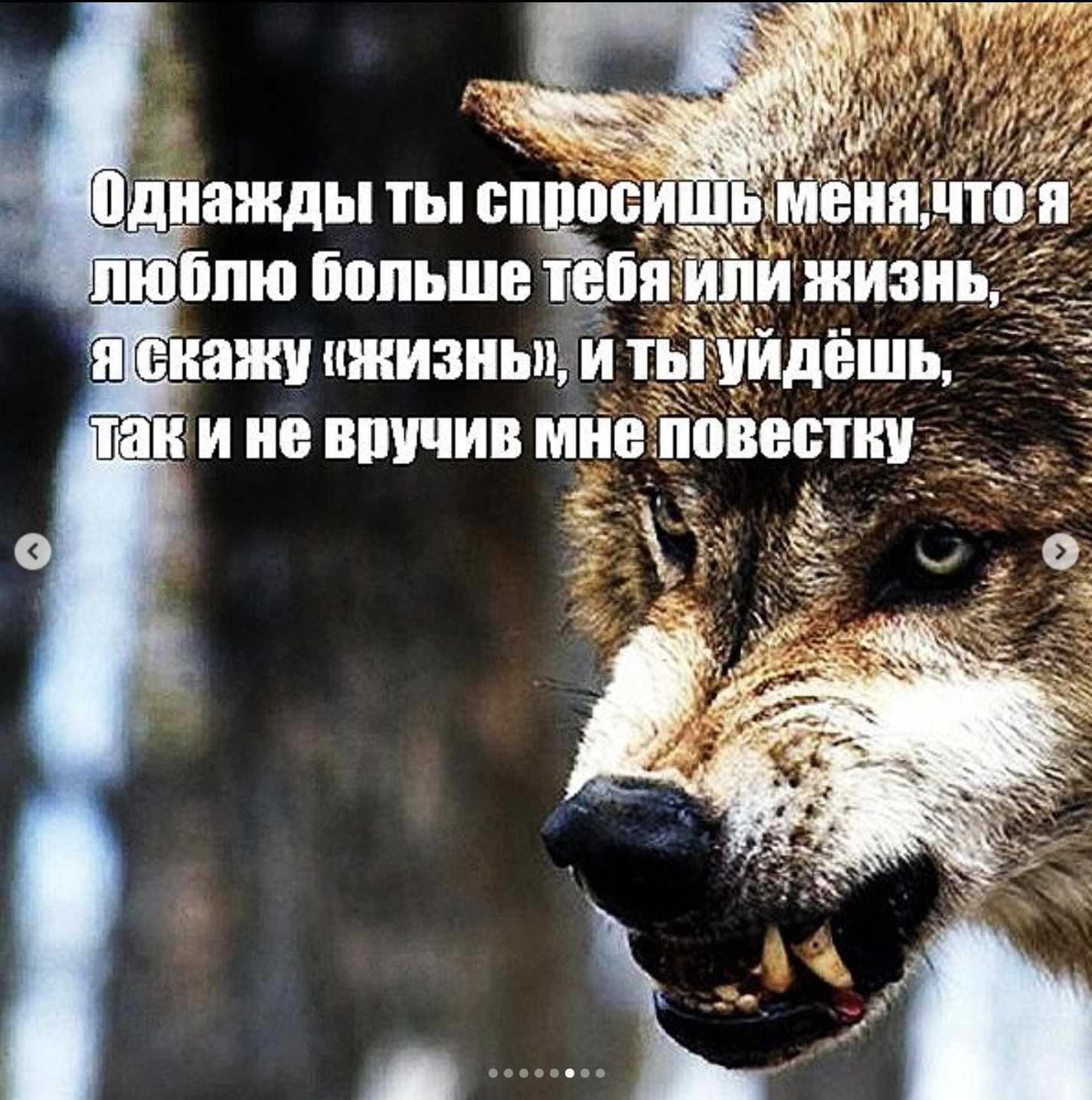
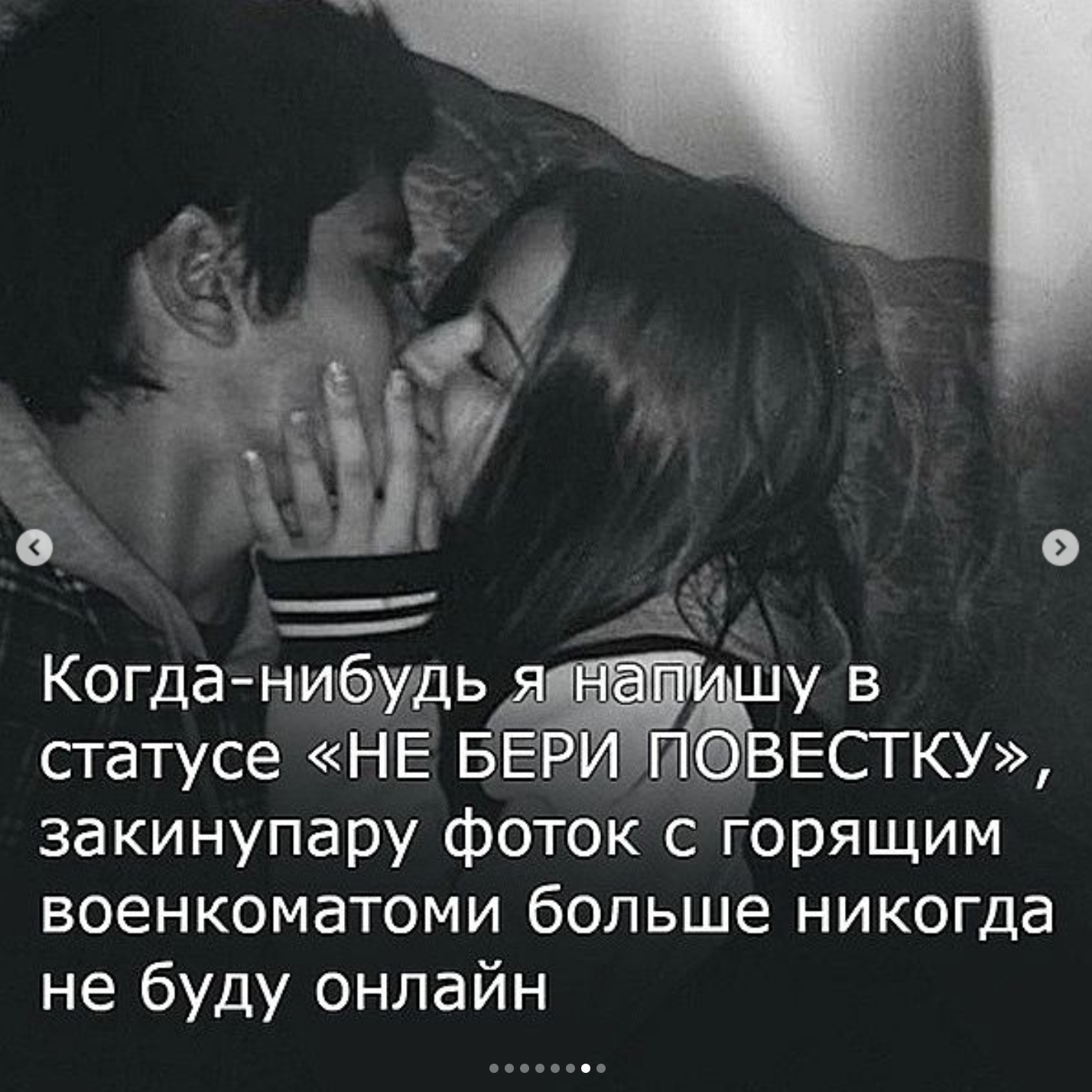
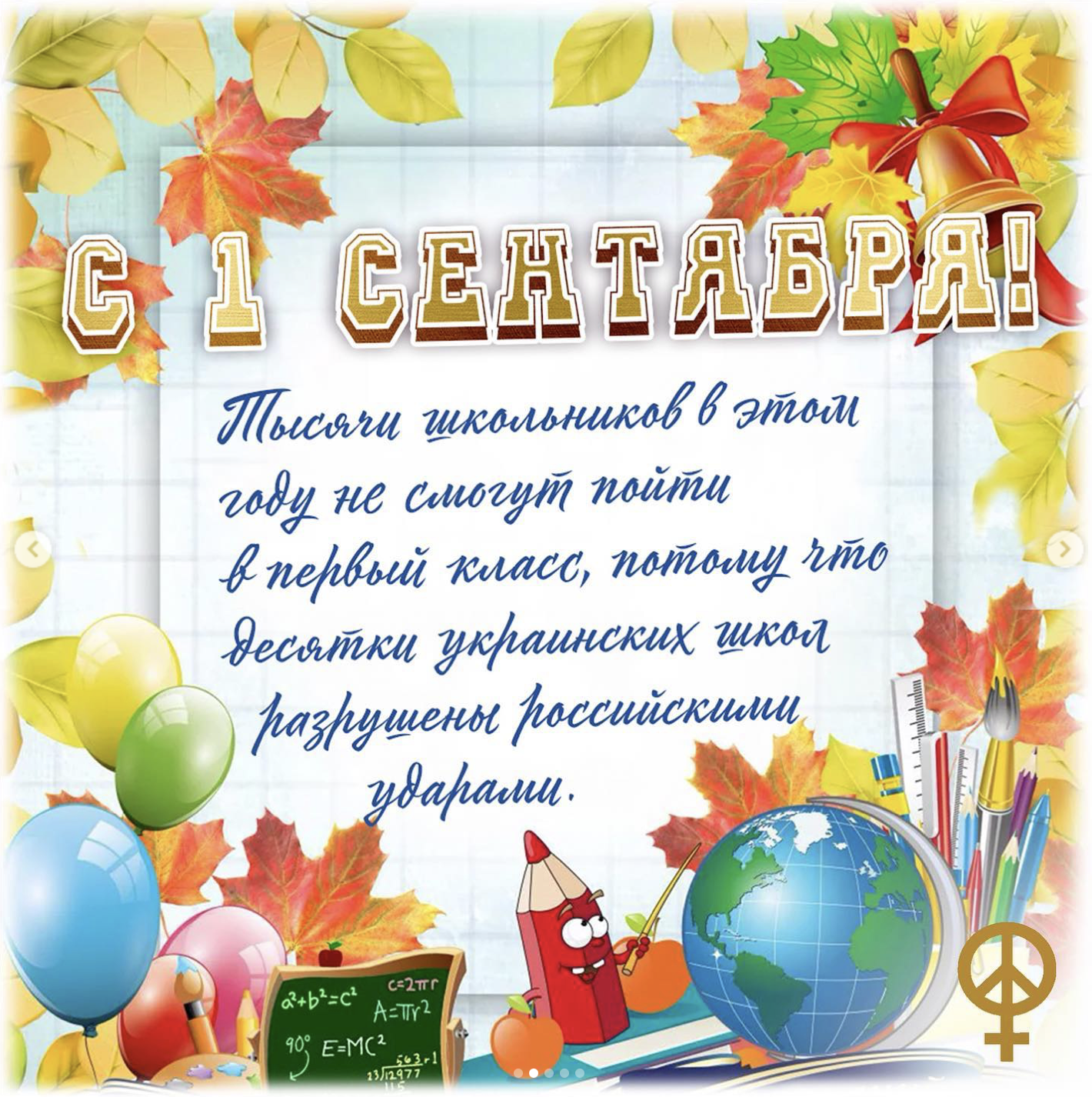
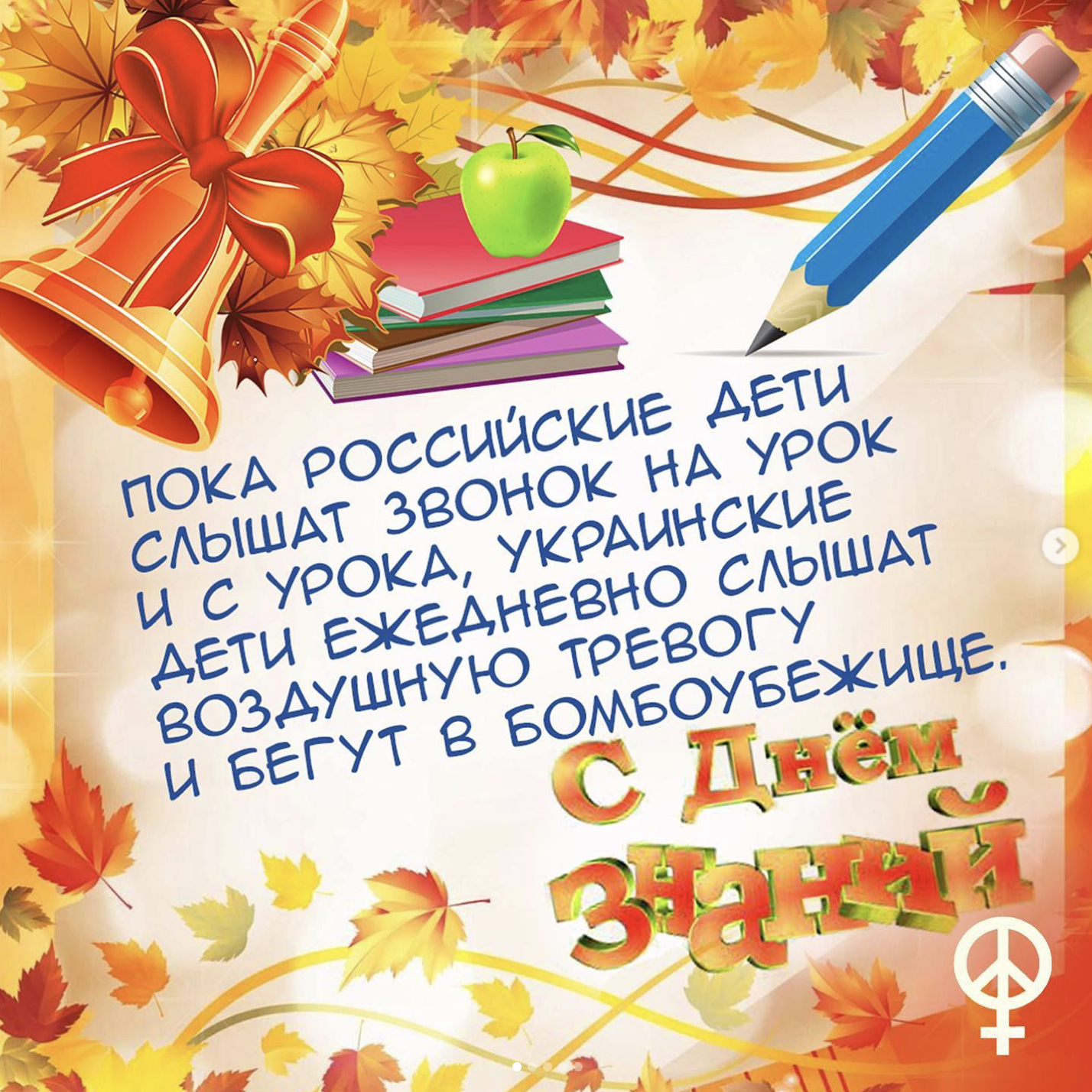
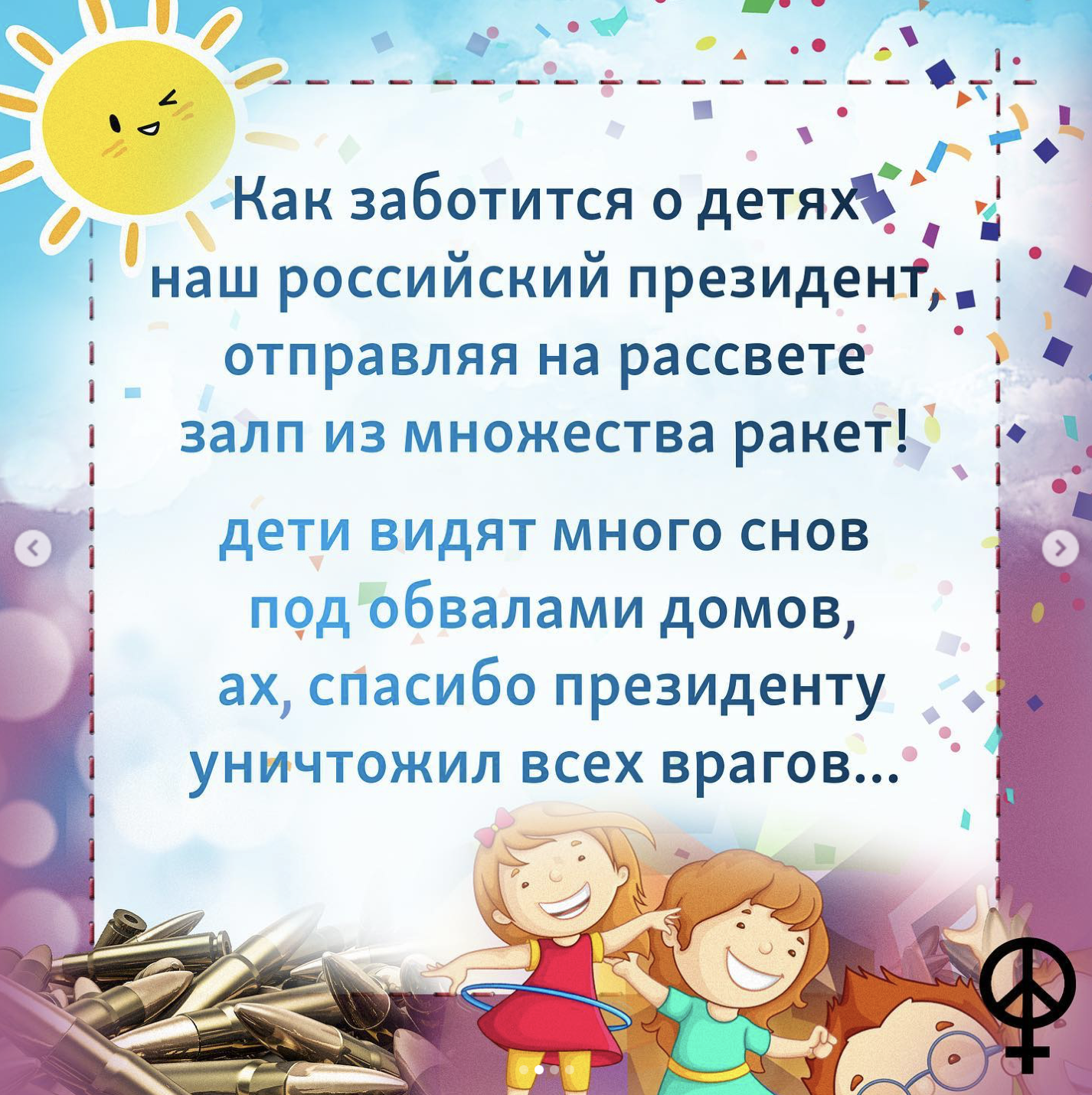
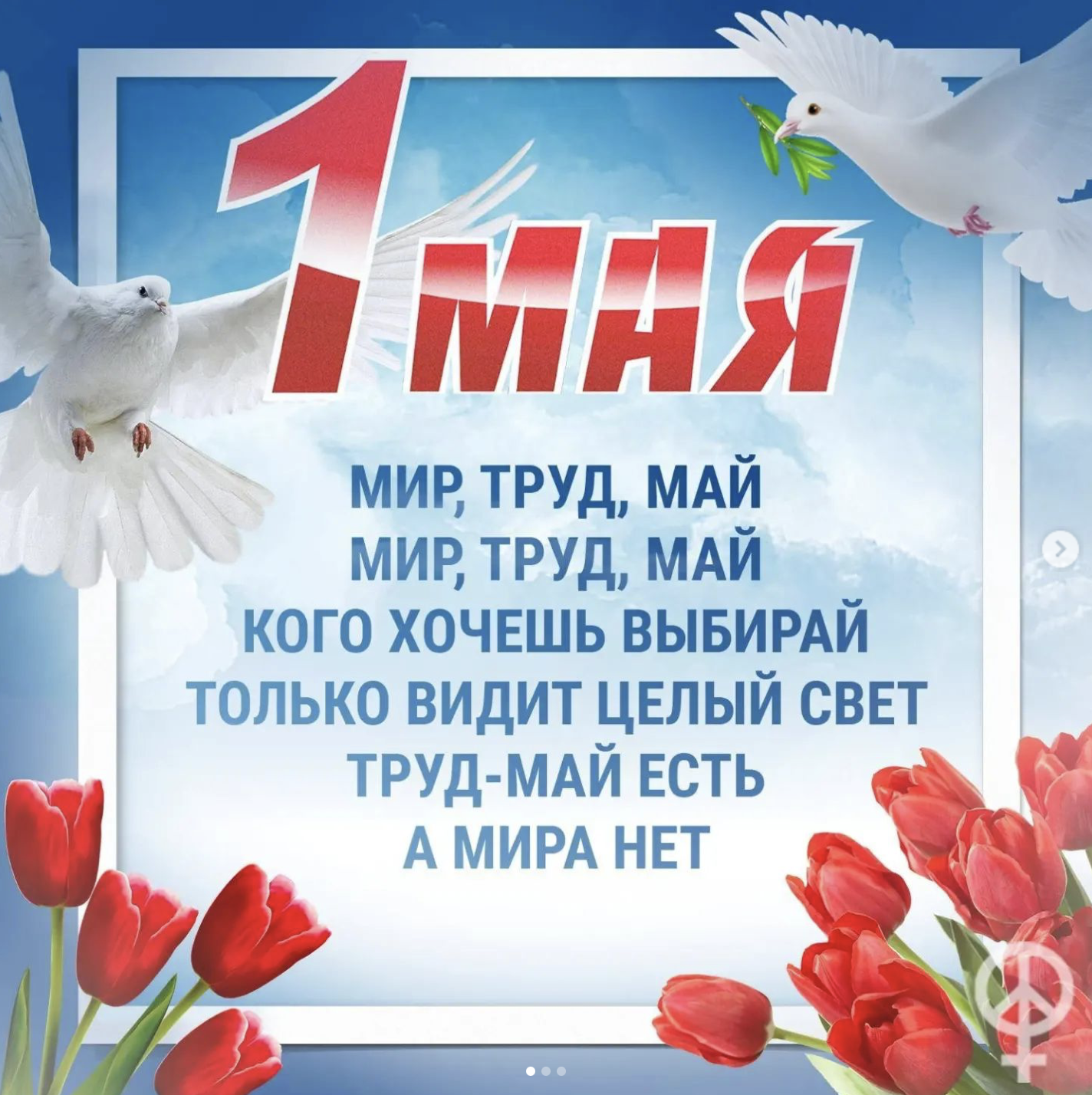
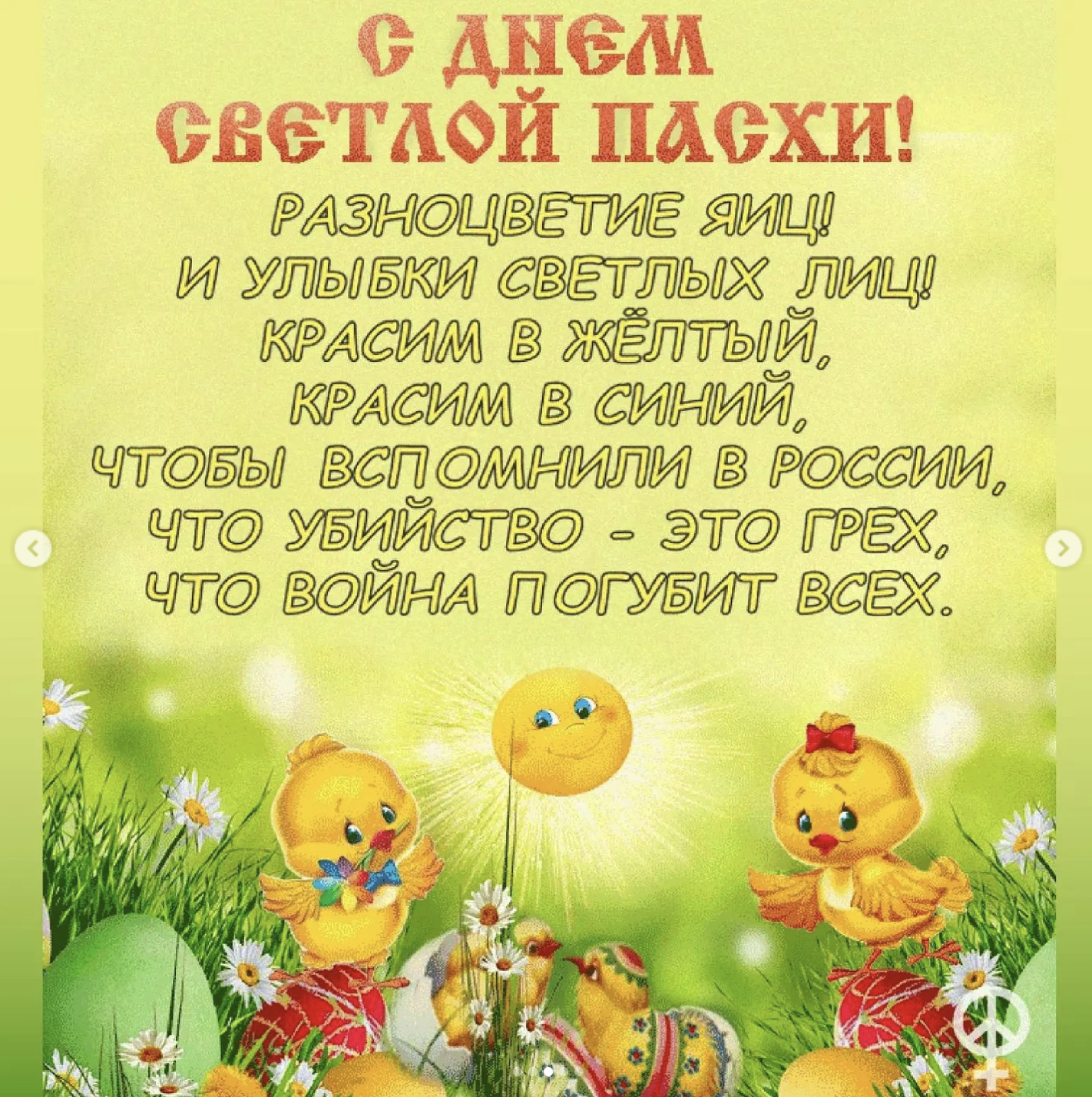

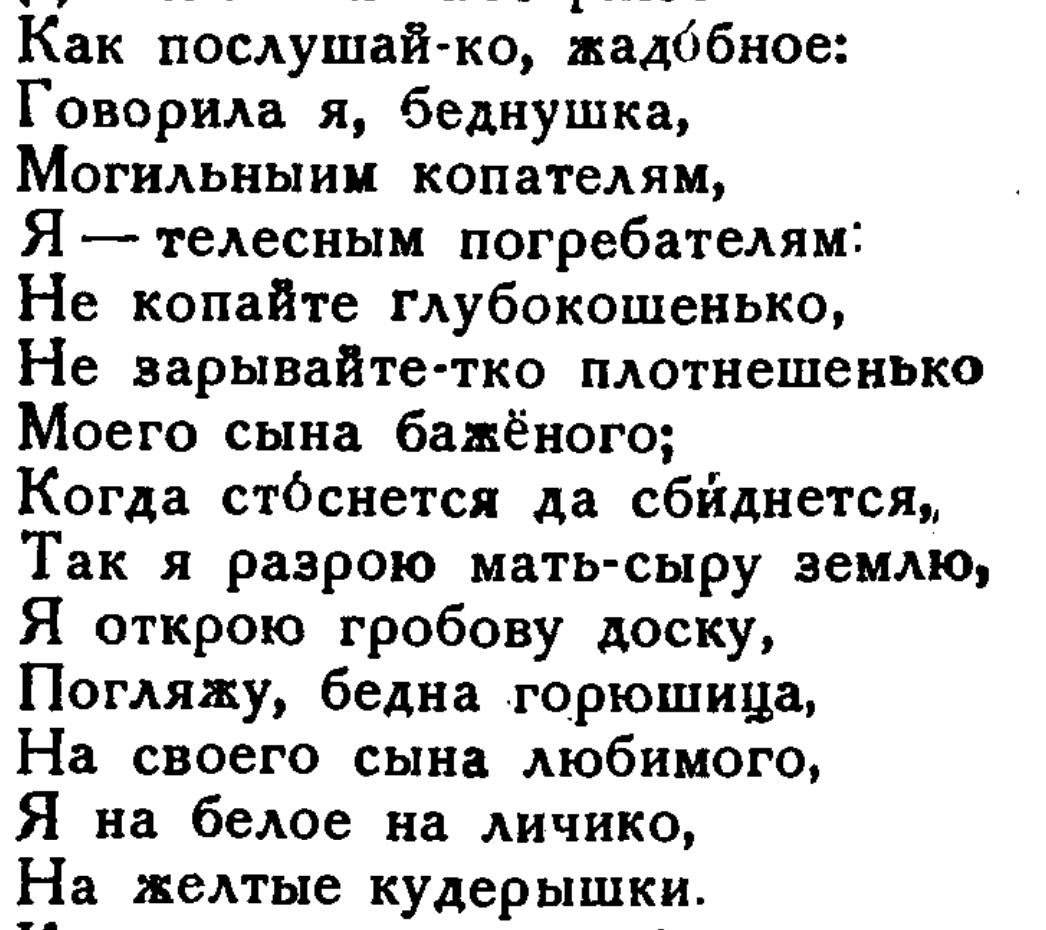
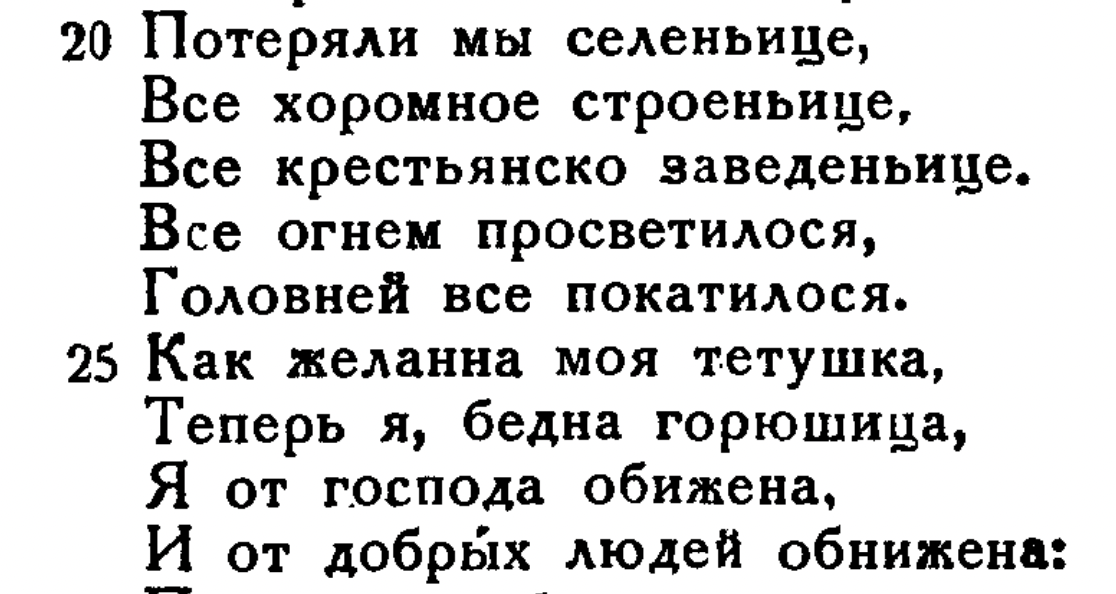

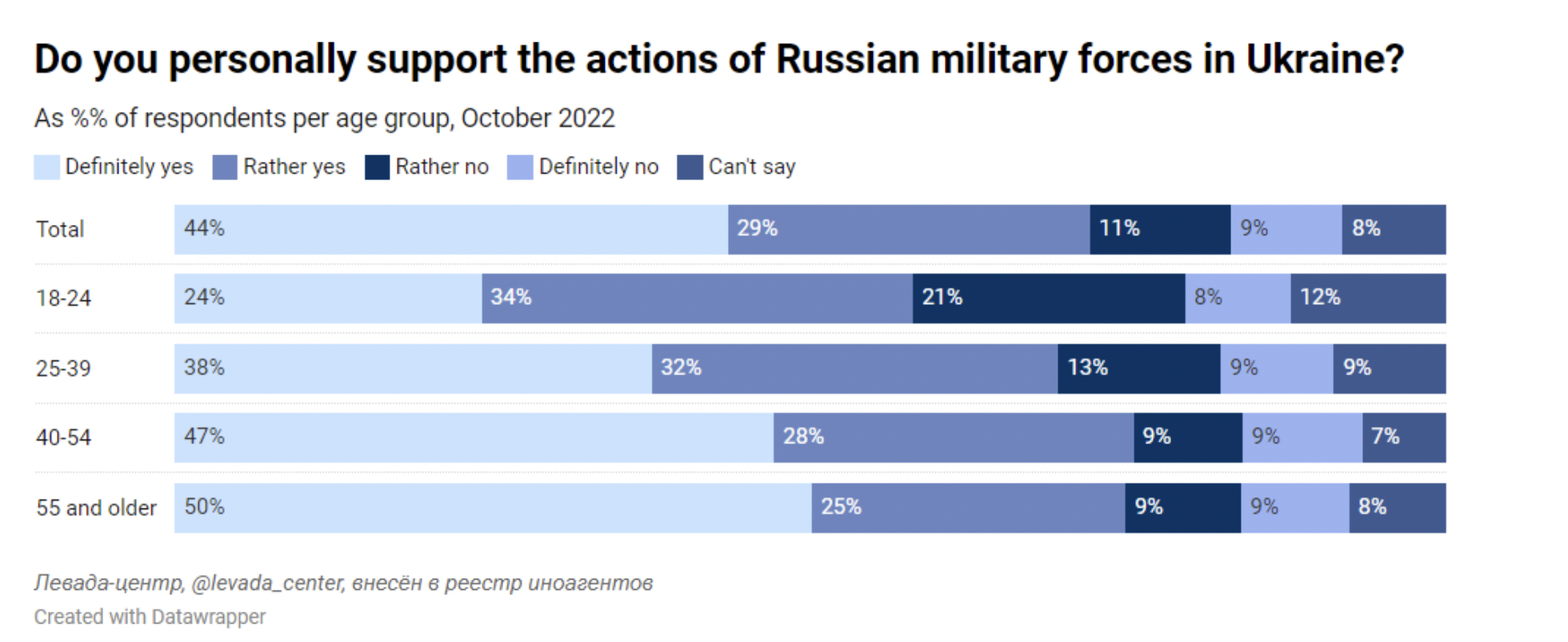
"-Bro, it is so small, what are you gonna do with it?
- With throw her away bro"
Talking about the drafting letter in the picture
Once, I will update my status with "DON'T TAKE THE DRAFTING LETTER", post a few pics of a burning draft board, and never return online
"If they spit in your back, you are a drafting officer" (c) Confucius
- 200 km/h, where are you rushing, bro?
- Just got a drafting letter, ruching to enlisting office...
- You can just throw away the drafting letter and not go to the enlisting office, bro, think about your MOM, who is waiting at home
180...150...120...80...60
Once you will ask me what I love more, you or life. I will say "life", and you will leave without handing me the drafting letter
Dream of Katya
Dream of Artemy
We are in Moscow, at my grandparents house. If I dream about home, I see their house. I grew up there, practically lived the first couple years of my life. In the dream we already know that Ukrainian army is currently on Russian territory, and that my dad and grandpa can be drafted under some sort of mobilization. We are packing things in a hurry, looking at the news, and seeing tanks near Moscow already. But we still have a lot to settle, pack and give out dogs to somebody’s care. At some point, there is a doorbell, soldiers with guns enter and put us on the floor faces down. I feel a barrel put against my head. And wake up.
I am in the US, where I study. Watching news for the whole day, reading telegram channels. Everywhere they are discussing if there is going to be a nuclear attack. Then there is an emergency news broadcast. I turn it on and see that Russia has launched a nuclear missile on us, on the US. And the US has launched one back, some European countries have also reacted. I realize that I might have just have a few minutes to call my family. I panic, dial my mom’s number, and can’t reach her. Then I woke up.
I had this dream when I was still in Russia, sometime in the spring. In this dream, I was at my grandparents' house, in their apartment, where I don't live, but I spent a significant part of my childhood there. There was some kind of premonition that something terrible was going to happen soon. We were sitting and watching TV, for some reason we didn't have internet. The only source of information seemed to be the TV. There was some anxiety, there was bad news.
A shell exploded, we had to urgently run somewhere, but at the same time no one understood where to run, whether the basement was open and not full of junk, and whether there was enough room for everyone. There were some more explosions, I felt that I couldn't do anything.
I thought maybe I should run away alone, because that way the chances of survival would be much higher. But in the end we all ran somewhere. It wasn't Russians or Ukrainians, just some enemy came and bombed. We hid all the same in some kind of basement or cellar. Someone said that the soldiers are already coming. We were sitting there and I had a feeling of helplessness that I couldn't influence anything. I felt weak because I didn’t have a weapon and I don't even know how to handle one. I was sitting there with elderly and women, and I was afraid that this certain enemy would come and open the door to the basement.
Well, that's the whole dream.
As far as I remember, it all started with me coming home from somewhere and reading newspapers with moving pictures, like in Harry Potter. All the articles there were about the same thing, that the war began. That Ukraine was attacked. My parents were at home at that moment, I ask them about something, but they flatly refuse to answer. They just sit in shock and silently watch the TV, where the news are the same. They are sitting right in utter shock, not believing their eyes and not even showing any signs of life.
Then I went outside, it was in Moscow, but there were a lot of foreigners around, even in my neighborhood. And everyone look at me with such terrible contempt "it's your fault, you're also Russian, everyone hates you now." They didn't say that, but I understood it perfectly from the eyes.
I come to my school friend who lives not far away, knock, call, try to convince him to open the door. It goes on for a while. Then, he writes to me that since I do not support the war, he won’t talk to me, we are no longer friends. I almost started crying, but went to other friends, who invited me to hang out. We hang out and it is chill for a bit, then they say, «well, we'll go to some chat to humiliate Ukrainians». Some kind of freak show begins, very strange, grotesque, where they hurt people and laugh from it. And these friends in a dream, I don't know such people, some abstract friends have appeared. They laugh and seem to feel, I understand that it gets creepy for me to be there.
I return home, my parents are there, silent, saying only "seen news, seen the news, seen». And I wake up.
It is about the middle of summer, there is still a war in Ukraine, but it is relatively safe in Kiev, it’s not being bombed. Me and two Kates are thinking of going to Kiev to visit the parents of one of them. I doubt the trip for a long time, but Kate convinces me that there is no disruptions there now, and in summer Kiev is gorgeous. I know that myself, I've been there before. We decide to go. We arrive and get to the center by train. We walk in the direction of these red soda machines, ones that stand in tourist places.
As if in a second the sky darkens and shells begin to explode all around, an air alarm howls. The girls and I grab each other convulsively, we rush towards the subway. Russian soldiers appear out of nowhere and grab us by the elbows and drag us in different directions. Bombs are exploding all around, shrapnel is flying from buildings, it's scratching me. I see that the girls are being dragged to some car, Kate is shrieking. I don't know if I should run try escaping or helping them. I quickly decide that the escaped me will be able to better help them later. I start to break out of the hands of the soldier who is holding me. Dressed in the uniform of the Rosgvardia. I break out in different directions, but it’s pointless, I start to cry and beseech to let me go, say that I'm Russian, one of them, to let me go. He spits in my face, forcefully bangs my head on the ground. I wake up. I don't know what happened to the girls.
Thank you reading this!
Word count: 4590
Sources:
1. Vinogradova, G. S., Mikhailova, M. M. (1940) Russian cries of Karelia. Leningrad.
2. Hasmagomadova, H. (2017) A talent - to mourn. Takie dela. https://takiedela.ru/2017/06/talant-oplakivat/
3. Vladyshevskaya, T.F. (2006) Musical culture of ancient Rus. Moscow. https://studfile.net/preview/2068028/
4. Levada centre. (2022) CONFLICT WITH UKRAINE: OCTOBER 2022. https://www.levada.ru/en/2022/11/01/conflict-with-ukraine-october-2022/
5. Feminist Antiwar Resistance Instagram page. https://www.instagram.com/fem_antiwar_resistance/
6. Sontag, S. (2003) Regarding the pain of others. Penguin books, UK.
7. Interviews with my friends
First Dream of Ksenia
Second Dream of Ksenia
Dream of Vanya
Dream of Maxim
My Dream
Please listen to the audio piece here
After
clicking on
the file, it will download to your computer in an mp3 format
Happy bright easter!
Coloured eggs!
And smiles brightening up faces!
Paint them yellow,
Paint them blue,
So in Russia they remember,
That killing is a sin,
That war will destroy us all.
While Russian kids hear the bell from the lesson and to the lesson, Ukranian kids daily hear the sirens and seek shelter.
Happy knowledge day!
How our president cares so much for the kids, when he sends at a sunrise hundreds of bombs!
Many dreams the kids will see under falling houses, thank you dear president, the peace has been restored...
Happy 1st of September!
Hundreds of school children won't be able to go to the first grade this year because hundreds of Ukranian schools are destroyed by Russian attacks.
1 of May!
Peace, Labour, May
Peace, Labour, May
Chose what ever you like,
But for the world it is to see
Labour-May are here
Peace is not
We have lost our hamlet,
All builidings,
All peasant work.
All lit up with fire,
All huged with coal.
I am a poor griever now,
Poor for god,
Poor for good folk
I sit on a furnace,
But me legs are cold,
I sit at a table -
my heart is starving.
Listen to me, you greedy:
Said me, indigent,
To grave diggers,
Me to body diggers:
Don't dig deep,
Don't lay ground thick
On my lovely son;
When it gets darker and damper,
I will dig up mother earth,
I will open the casket,
I will look, poor griever,
Look at my loved son.
But the age won't come back,
Alive won't be born from dead,
Won't return from the grave.
Examples of criers songs from Karelya:
Watch the video from 01:20 for an example of the sound of a traditional criers song
All translations from Russian to English are done by me.